Uneeda Juvenile Law Lawyer, West Virginia
Sponsored Law Firm
-
 x
x

Click For More Info:
-
The Law Offices of Claude S. Smith III
805 Bigley Avenue Charleston, WV 25302» view mapCriminal Defense Law Working With Clients One On One
As your attorney, I will make sure you know that I am here for you. I will keep you updated on your case as it progresses.
800-936-8471
Not enough matches for Uneeda Juvenile Law lawyer.
Below are all Uneeda Criminal lawyers.
Ronald N. Walters
✓ VERIFIEDRon has, over the last decade, assisted clients by planning and designing settlements to address future needs and ensure any government benefits are p... (more)
Claude S. Smith, III
✓ VERIFIEDWhether you have suffered an accident while on the job or suffered an injury during a car accident or semi truck accident, The Law Offices of Claude S... (more)
Jody D. Wooton
✓ VERIFIEDJody's intrigue with the legal system began about the time he was becoming a teenager. He vividly recalls observing his father and uncle working to es... (more)
Jon D. Hoover
✓ VERIFIEDJon graduated from Widener University School of Law in 1999. Jon returned to West Virginia and worked briefly with the Kanawha County Prosecuting Atto... (more)
W. Michael Frazier
✓ VERIFIEDW. Michael Frazier is a graduate of Vanderbilt University, and the WVU College o f Law. His practice primarily involves litigation involving estates a... (more)
 Claude S. Smith, III Charleston, WV
Claude S. Smith, III Charleston, WV Practice AreasExpertise
Practice AreasExpertise





